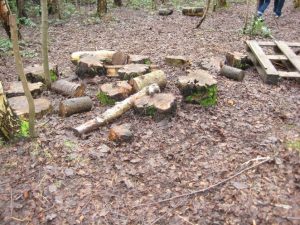12 Conclusion
 As society trends towards an increasing focus on safety and liability that limits children’s exposure to risky nature play, it is critical that early childhood education programs incorporate formalized training that promotes the children’s and educators’ development of risk assessment and connection to the outdoors. From the literature reviewed, it is clear that a continued aversion to both risky play and experiences in the outdoors will result in poor health among the Canadian population. Ample evidence is available to support the notion that outdoor, nature-based and risky play positively contribute to children’s overall development and school readiness. In addition to individual benefits, engagement in the outdoors at a young age positively contributes to children’s awareness of sustainability and environmental issues.
As society trends towards an increasing focus on safety and liability that limits children’s exposure to risky nature play, it is critical that early childhood education programs incorporate formalized training that promotes the children’s and educators’ development of risk assessment and connection to the outdoors. From the literature reviewed, it is clear that a continued aversion to both risky play and experiences in the outdoors will result in poor health among the Canadian population. Ample evidence is available to support the notion that outdoor, nature-based and risky play positively contribute to children’s overall development and school readiness. In addition to individual benefits, engagement in the outdoors at a young age positively contributes to children’s awareness of sustainability and environmental issues.

